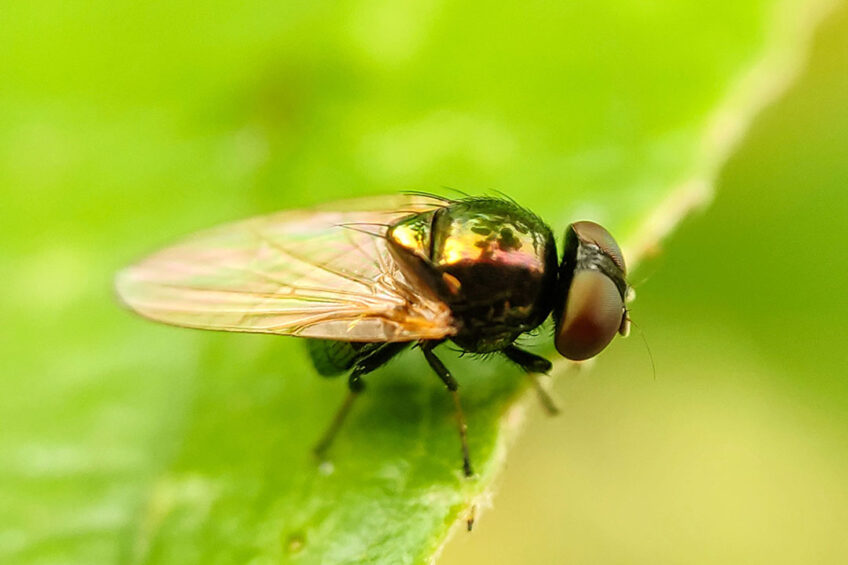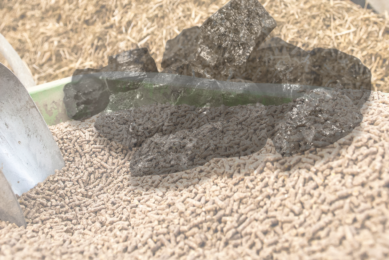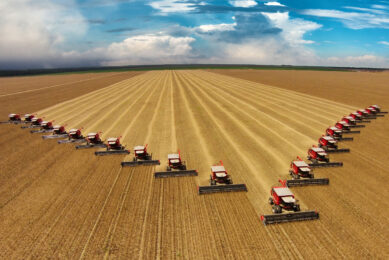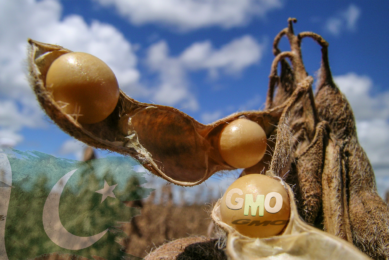Is BSF an economically viable option for soy protein in animal feed?

A report has explored the potential for black soldier fly (BSF) to become an economically viable alternative to soy as the protein input to animal feed, while also tackling the UK’s estimated annual 13 million tonnes of food waste.
BSF can process any form of organic matter – including waste – and convert it into biomass. Controlled breeding of these insects in dedicated facilities produces a nutritious protein source that could serve as an alternative to soy protein in animal feed, says the report from Frontier Economics. While the BSF market is gaining attention from investors due to its scalability, it is still just in its infancy and has yet to reach the scale necessary to meet the UK’s current demand for animal feed.
The challenge of cost
Through research, interviews with industry players and modelling, the report ‘Delivering insect-based feed at scale’ evaluates the case for insect-based animal feed and the conditions necessary for scaling up a UK-based industry. The study indicates that, at current prices for BSF protein, BSF-fed meat would be around 50% more expensive than soy-fed meat – which would be a barrier to scaling, given the competitiveness of the meat sector.
Change in permitted waste streams needed
However, if regulatory change on the permitted waste streams for BSF can be achieved, then it could, in principle, scale to displace a share of soy. For example, diverting 25% of certain low cost to access food waste sources could produce enough protein to displace 28% of the soy used in feed at a relatively modest BSF-fed meat premium of 5-9%.
The report includes 5 calls for action, including:
Regulatory change on the use of insect-based feed for livestock – legislative progress is needed to overcome the initial regulatory barrier on the use of BSF protein in poultry and pig farming, which has stalled since 2020. This needs to be addressed to unlock any change.
Regulatory change on permitted waste streams for BSF rearing – Defra and the Food Standards Agency should consider making regulatory changes to open up cheaper and more plentiful waste streams for BSF. Achieving this would require political support for change and adequate resourcing for the necessary trials, to satisfy any concerns about the range of possible substrates.
BSF site trials – trialling different operational models will be key to establishing which models are economically viable and identifying the best partners across the food and waste value chains. A sponsor could help to encourage further trials. This may be a role for Circular Food Systems or those with a view on food system innovation.
Food retailer engagement – retailers and restaurants play an important role in shaping meat supply chain, setting the product specification and how it is positioned with consumers. Circular Food Systems may wish to engage with the sector to explore ways of trialling new feed types, repurposing food waste to BSF sites or even testing consumer appetite for “soy-free” product ranges.
Capital support – financing support for BSF farmers could help to kick-start production on a wider scale. Current evidence indicates there is sufficient investor interest and if the market evolves, it could receive government support, given that scaling up BSF aligns with food strategy goals and could help achieve net zero targets. Alternatively, philanthropic donations could be a way of accessing the necessary kick-starter funding.











